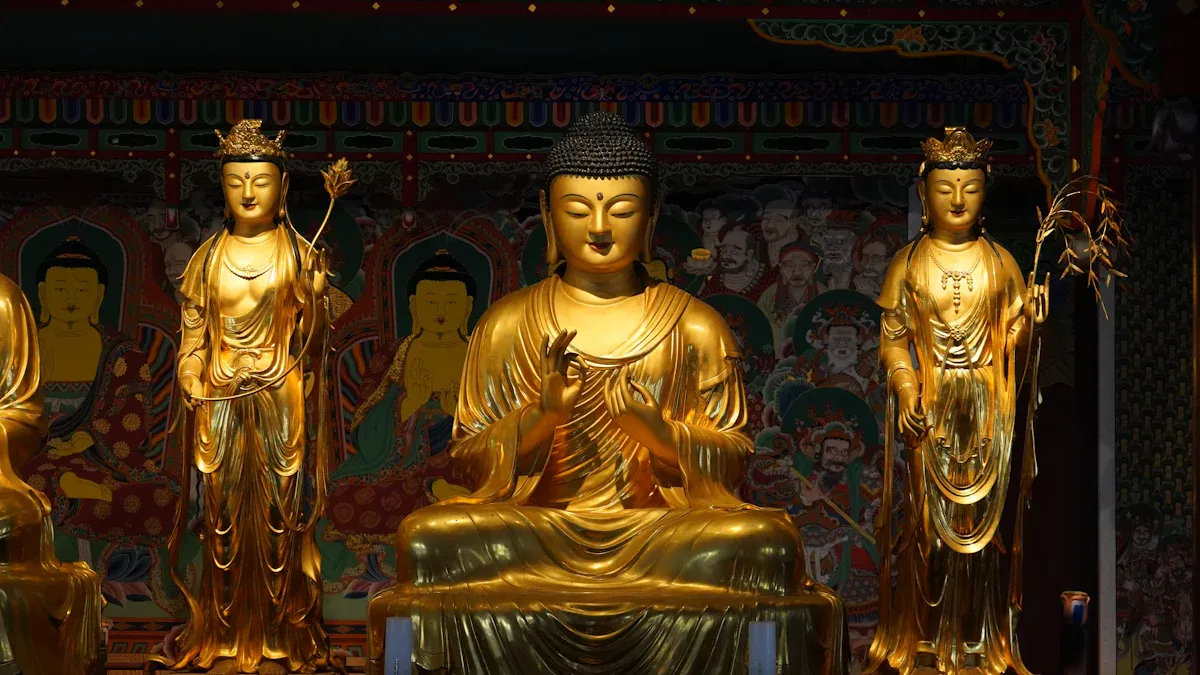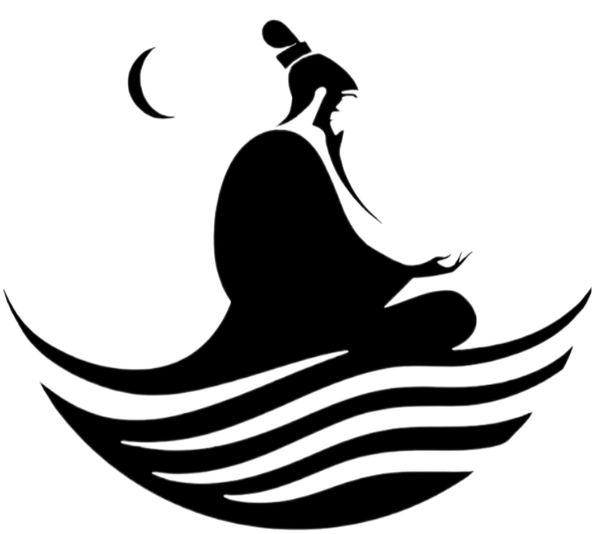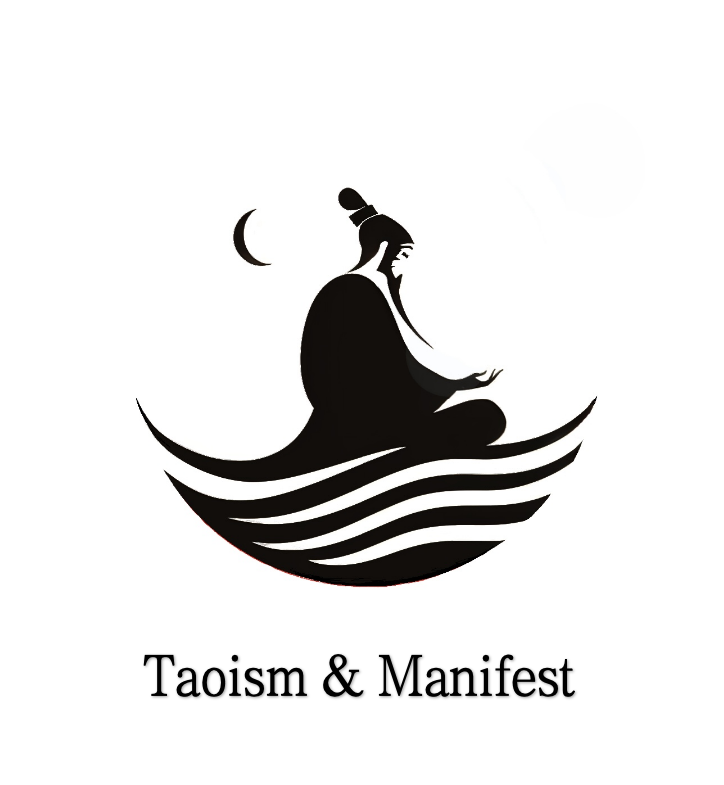
Dao Xin in Taoism means the heart-mind that guides people toward the tao in daily life. This heart-mind values serenity and steadfastness. When someone follows the way, they find peace and harmony in life. Taoism teaches that the tao flows through every part of life, shaping actions and thoughts. By trusting the way, a person experiences life with less struggle and more simplicity. The tao supports a calm mind, helping people meet life’s changes with steady focus and gentle acceptance.
Key Takeaways
Dao Xin is the heart-mind that helps people live calmly with the Tao every day.
Being quiet and steady helps keep the heart-mind calm, even when things are hard.
If you follow the Tao, you may feel a natural flow, inner calm, patience, and kindness.
Living simply and practicing Wu Wei means you act without forcing things and trust how life moves.
Being still each day, staying mindful, and letting go of control help Dao Xin grow and bring peace that lasts.
Dao Xin in Taoism

Meaning of Dao Xin
Dao Xin, often called the heart-mind in Taoism, stands at the center of taoist philosophy. This heart-mind is not just the mind that thinks or plans. Instead, it is a special kind of awareness that connects a person to the tao and the flow of life. Taoist texts like the Tao Te Ching and Zhuangzi describe Dao Xin as empty and still. This emptiness does not mean nothingness. It means the heart-mind stays open and calm, ready to receive the way of the tao without being pulled by desires or worries.
In daily life, Dao Xin helps people sense the connection between themselves and the world. The ordinary mind often chases after things, makes judgments, or tries to control situations. Dao Xin, on the other hand, lets go of these habits. It allows a person to act with naturalness and ease, following the way of the tao. This heart-mind does not try to dominate or force outcomes. Instead, it trusts the tao and moves with the natural rhythm of life. When someone lives with Dao Xin, they feel a deep sense of harmony and peace, even when life changes.
Quietude and Steadfastness
Quietude and steadfastness are the two main qualities of Dao Xin. In taoist philosophy, quietude means keeping the heart-mind calm and undisturbed. This does not mean sitting still all day. Instead, it means holding serenity inside, no matter what happens outside. The Tao Te Ching often speaks about returning to stillness and emptiness. For example, chapter 16 says that complete quietude helps everything return to its root, which is the eternal tao. This quietude brings a sense of peace and connection to the way.
Steadfastness means staying true to the tao, even when life gets hard. Taoist masters show this by not chasing after desires or quick fixes. They can face challenges and remain steady, like a tree that stands firm in the wind. The Tao Te Ching and other taoist texts describe how sages keep their heart-mind unmoved by outside events. They do not rush or force things. Instead, they trust the tao and let life unfold naturally. This steadfastness shows a deep connection to the tao and a strong sense of serenity.
Tip: When someone practices quietude and steadfastness, they often notice more harmony in their life. They feel less stress and more peace, even during busy times.
Signs of the Tao
Flow and Harmony
Many people want to know if they are following the Tao. Taoist teachings give signs that help people see if they live with the Tao. These signs show up in how someone feels, acts, and thinks each day. They point to a strong link with the way.
Someone on the Tao’s path often feels a sense of flow. This flow means life feels easy and not forced. Things happen naturally, and choices are clear. The mind stays calm, even when things get tough. This balance brings peace and calmness.
Taoist followers say this flow is smooth energy moving. Their breath is steady, their body feels light, and their thoughts are clear. Meditation, Tai Chi, and Qigong help build this flow. These practices connect the mind and body. They help people feel relaxed but also alert. A person feels steady and ready for change.
Tip: When someone lives in harmony with the Tao, they notice more patience and kindness. They accept changes and do not fight against them.
Here are five simple ways to check if you are on the path:
Inner Stillness: The heart-mind stays calm, even when life is busy. People feel more stable and think more clearly.
Natural Flow: Life does not feel forced. Actions and choices come easily, without too much thought.
Absence of Struggle: There is less need to control things. People adapt to change and stay open and strong.
Patience and Acceptance: Waiting and accepting things feels normal. There is no rush or need to force results.
Compassion and Humility: Kindness and humility grow. People care for others and act with goodness.
These signs show a state of flow and harmony. Mind, body, and spirit work together. People with these traits feel more peace, joy, and happiness. Their link to the Tao brings unity with nature and deep well-being.
Simplicity and Non-Forcing
Simplicity and non-forcing, called Wu Wei, are key in Taoist life. The Tao Te Ching says the Tao is simple and natural. People who follow the Tao let go of extra wants and live simply. They do not try to control everything. Instead, they trust the flow and let things happen.
Wu Wei means acting without effort or struggle. It is like water moving around rocks, finding the easy way. People who use Wu Wei do not push against life. They move with the flow and respond to each moment with ease. This brings less stress and more peace.
Taoist books say to let go of strict ideas. By letting go of mental struggle and living simply, people find more harmony with nature. Living simply means caring about what matters and letting go of what does not help the way.
Note: People who live simply and do not force things feel lighter and happier. They feel closer to the world and more balanced each day.
Attitudes and actions that show someone is with the Tao include:
Seeing all life as one and feeling close to nature.
Accepting every part of themselves, even flaws.
Going with change instead of fighting it.
Keeping life simple and letting go of selfish wants.
Having a quiet mind, open to what is needed now.
Acting with humility, compassion, and honesty.
Knowing the balance of yin and yang in all things.
Responding to life without ego, letting the Tao lead.
These traits show a person is living with the Tao. They bring peace, harmony, and lasting calm. By going with the flow and living simply, anyone can feel the gentle power of the Tao each day.
Cultivating Dao Xin

Stillness Practices
Dao Xin grows strong through stillness. Many people find that quiet sitting, gentle breathing, and daily contemplation help the heart-mind settle. The Tao Te Ching teaches that true quietude is not just about stopping movement. It is about letting the mind rest and allowing the way to reveal itself. In practice, this means letting go of busy thoughts and not forcing the mind to be silent. Higher Qi Gong and True Yoga offer gentle ways to relax the body and mind. These practices focus on the natural breath and the slack moments between breaths. Over time, stillness brings clarity and helps the heart open to the tao. Studies show that these practices improve mental clarity, sleep, and emotional balance. People who practice stillness often feel more peace and less stress in daily life.
Wu Wei in Daily Life
Wu Wei, or actionless action, is a key part of the way. Taoist teachers say Wu Wei means acting without forcing or resisting. In daily life, this looks like moving with the flow and trusting the tao. People practice Wu Wei by staying present in each moment, whether eating, walking, or working. They listen to their intuition and let go of the need to control every outcome. In relationships, Wu Wei means listening with care and responding with kindness. At work, it means focusing on the task at hand and not letting stress take over. Wu Wei also encourages people to rest and allow creativity to rise naturally. This practice leads to inner peace, better health, and stronger connections with others. By following Wu Wei, people find harmony and balance in life.
Embracing Naturalness
Naturalness is at the heart of the tao. The Tao Te Ching calls people to return to a simple, uncarved state. To embrace naturalness, one can observe nature, simplify routines, and let go of extra wants. Mindfulness and contemplation help people live in the present and accept change. The way teaches that life is always moving and changing. By accepting this, people find more joy and less struggle. Compassion, moderation, and humility are treasures that support naturalness. Research shows that spending time in nature and living simply brings greater well-being and life satisfaction. When people let go of resistance and follow the way, they feel more connected to themselves, others, and the world. Actionless action and daily contemplation help keep the heart-mind open and in tune with the tao.
Dao Xin stands as a guide for living with peace and purpose. Signs like inner stillness, natural flow, and compassion show when someone lives in harmony with the tao. Taoist teachers remind everyone that cultivating Dao Xin is a lifelong journey. They encourage steady effort, patience, and faith in the way. Practicing quietude and steadfastness each day helps people meet life’s changes with calm and clarity. Self-reflection using the five self-check points keeps the heart-mind open to the tao and brings lasting joy to life.
FAQ
What does it mean to live in harmony with the tao?
Living in harmony with the tao means moving with the flow of life. People accept changes, practice simplicity, and trust the way. They find peace and balance by letting go of struggle and following naturalness.
What is Wu Wei in taoist philosophy?
Wu Wei means actionless action. In taoist philosophy, it teaches people to act without forcing things. They let life unfold, respond calmly, and stay in a state of balance. This brings more serenity and inner peace.
What are signs of alignment with the tao?
Signs include a calm heart, gentle actions, and a sense of connection with nature. People feel more joy, patience, and compassion. They notice less stress and more harmony with nature in daily life.
What practices help someone find inner peace in taoism?
Stillness, daily contemplation, and living simply help people find inner peace. These practices support going with the flow and build a strong connection to the tao. Many also enjoy spending time in nature.
What is the role of virtue in taoist principles?
Virtue guides people to act with kindness and honesty. In taoist principles, virtue supports harmony and balance. It helps people build better relationships and live with more peace and naturalness.
See Also
How Embracing Wu Wei Makes Work Less Stressful
What is the Tao that can be told and what inspired the Tao Te Ching






